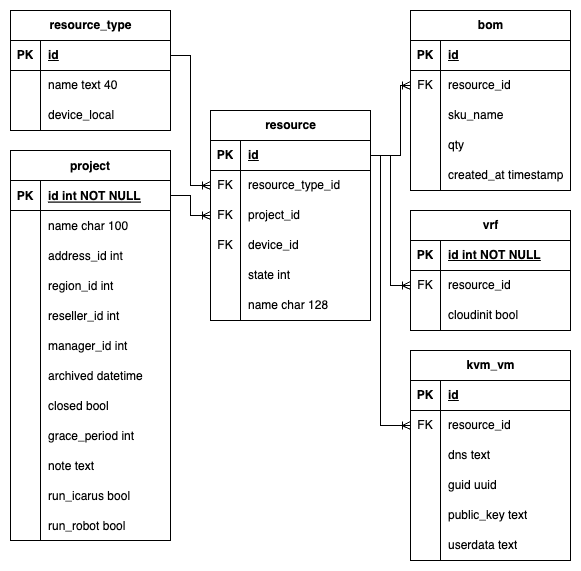Cloudinit¶
Implementation¶
The lxc Meta Table contains a lxc.userdata (text) property. This text is supplied by the User of the lxc endpoint and is served in base64 encoding by the webserver.
The metadata file is generated (function utils.metadata) based on the contents of lxc Meta Table and the bom records for the lxc resource.
ERD¶
